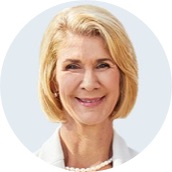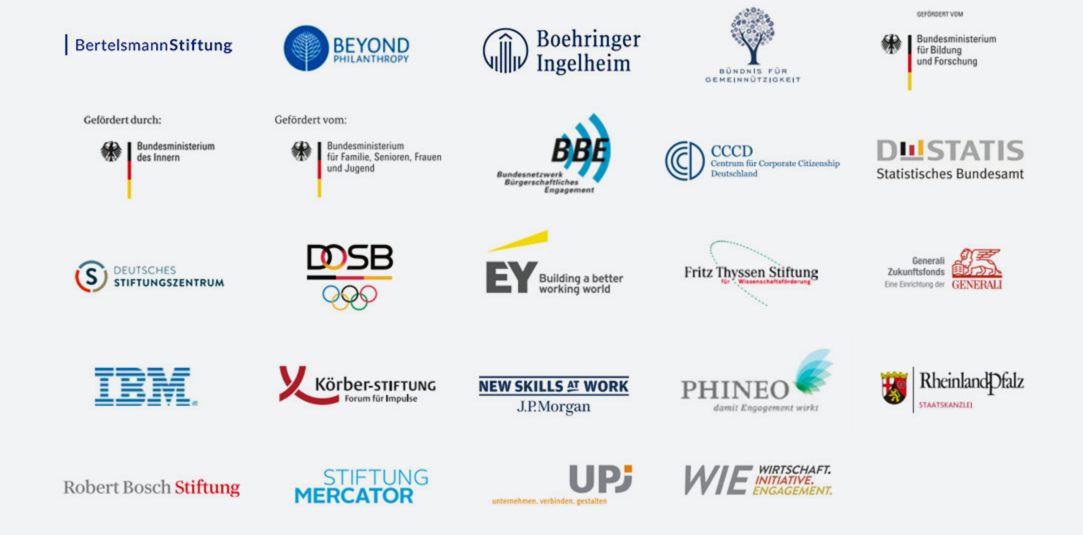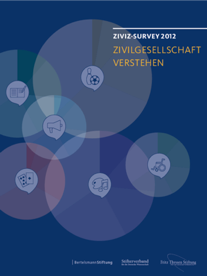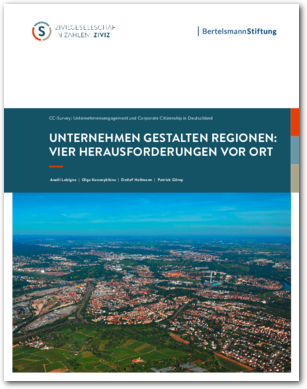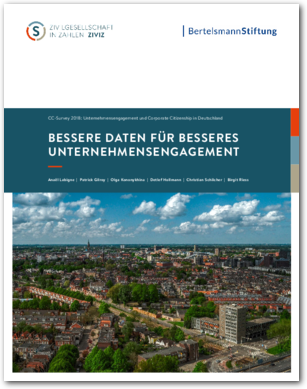More than 6,300 nonprofit organizations participated in the
second ZiviZ survey, which was published in 2017. For the first time, more detailed information on specific topics was collected: There were questions on educational activities, fundraising initiatives and the social integration of immigrants and refugees. The 2017 ZiviZ Survey was supported by the Bertelsmann Stiftung, the Federal Ministry of Education and Research, the Robert Bosch Stiftung and Stiftung Mercator.
Germany’s civil society is changing. Urban organizations are becoming more political, those located in rural settings more focused on social integration. While groups dedicated to traditional topics – sports, leisure, social activities – are firmly established in rural communities, cities are also home to foundations and nonprofit businesses. Providing services and addressing political and social issues play a much greater role for organizations located in urban environments.
One association in five in Germany is dedicated to fundraising. Almost 30 percent of the country’s 130,000 fundraising associations were founded after 2006, making them one of the fastest growing segments among nonprofits. Fundraising associations are most often found in the areas of education, child care and culture.
Community groups, clubs, associations, foundations and other charitable organizations see themselves as part of an autonomous civil society. Two out of three charitable organizations (64 percent) say it is both fitting and important that their work is done and funded by society at large and not the government. Almost a third (31 percent) believe their work should at least be financed by the government. Only 6 percent see themselves as a provider of last resort and feel their services should come from the public sector instead.
In addition to the
main report the dataset was used to produce additional reports which examined specific topics in detail:
Additional in-depth analyses are being developed – analyses of two of Germany’s states, Bavaria and Saxony, for example, and a report on organizations assisting refugees.

